Clashes In Largest Kazakh City, Moscow-led Troops Arrive
Bursts of gunfire echoed through the streets of Kazakhstan's largest city on Thursday as Moscow-led troops arrived to help quell mass unrest that left dozens dead and hundreds detained.
Fighting in Almaty continued a day after protesters stormed several government buildings, with an AFP correspondent hearing regular eruptions of gunfire from the direction of a central square.
Local media reports said security forces had cleared demonstrators from the square and other key government buildings, but there were also reports of gunfire elsewhere in the city.
The first units of Russian forces from a Moscow-led peacekeeping force had meanwhile arrived in Kazakhstan, the Russian defence ministry said, after the Kazakh government appealed for help.
Long seen as one the most stable of the ex-Soviet republics of Central Asia, energy-rich Kazakhstan is facing its biggest crisis in decades after days of protests over rising fuel prices escalated into widespread unrest.
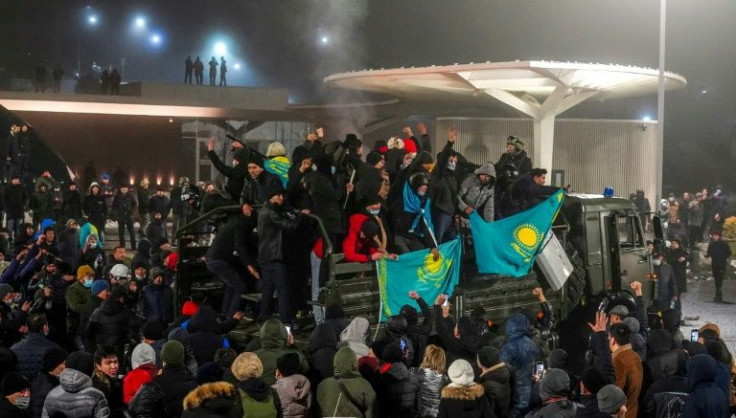
Armed protesters have fought running battles with government forces, with officials saying 748 security officers have been wounded and 18 killed, including two who had their heads cut off.
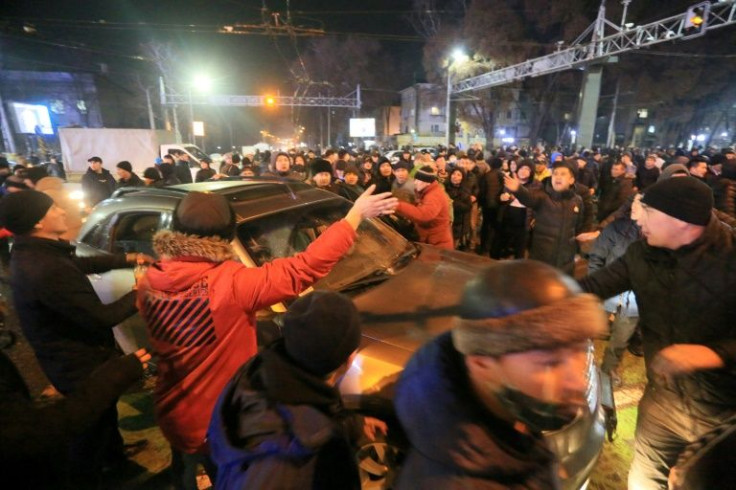
Burnt-out vehicles littered Almaty's streets, several government buildings were in ruins and bullet casings were strewn over the grounds of the presidential residence, which was stormed and looted by protesters on Wednesday.
"I didn't know our people could be so terrifying," Samal, a 29-year-old nursery-school teacher, told AFP near the residence.
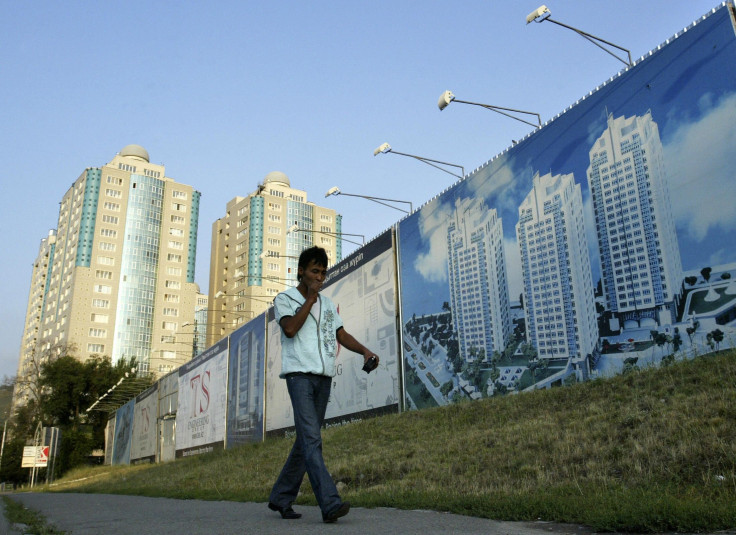
Under increasing pressure, President Kassym-Jomart Tokayev appealed overnight to the Russia-dominated Collective Security Treaty Organisation (CSTO), which includes five other ex-Soviet states, to combat what he called "terrorist groups" that had "received extensive training abroad".
Within hours the alliance said the first troops had been sent -- including Russian paratroopers and military units from the other CSTO members -- in its first major joint action since its founding in 1999.
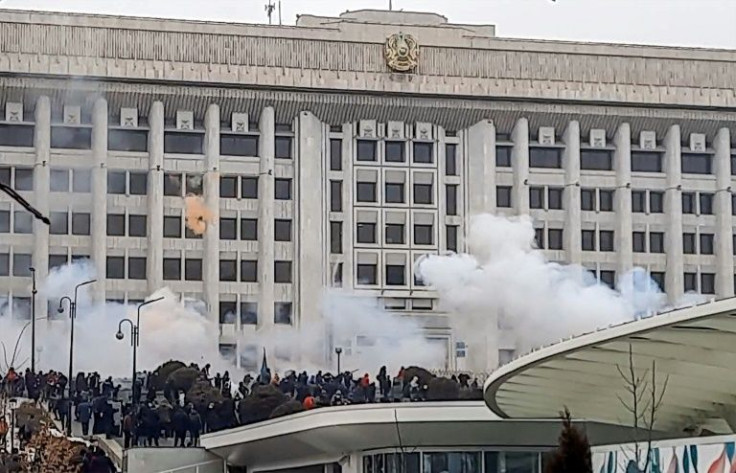
"Peacekeeping forces... were sent to the Republic of Kazakhstan for a limited time to stabilise and normalise the situation," the CSTO said in a statement, without specifying the number of troops involved.
The Russian foreign ministry said it saw the unrest as "an attempt inspired from outside to undermine the security and integrity" of Kazakhstan.
In the worst reported violence so far, police said dozens of people were "eliminated" in overnight battles with security forces at government buildings in Almaty.
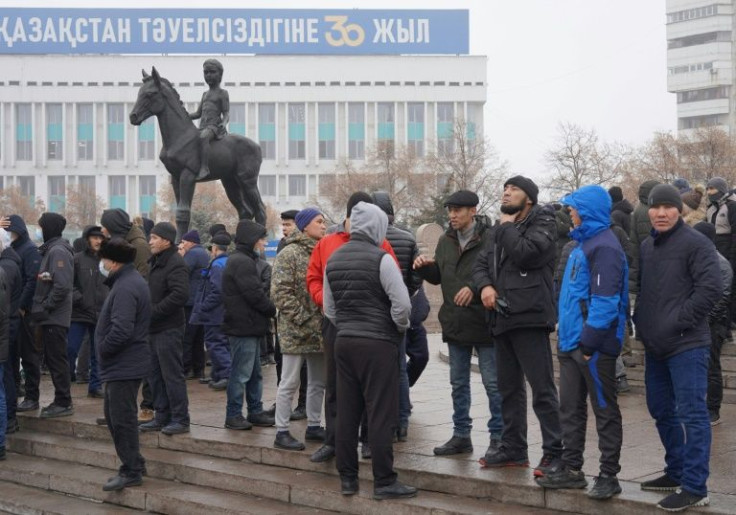
The interior ministry said police had "moved forward to clear the streets" and detained about 2,300 people so far.
Officials said more than 1,000 people had been wounded in the unrest, with nearly 400 admitted to hospital and 62 in intensive care.
Protests spread across the nation of 19 million this week in outrage over a New Year increase in prices for liquid petroleum gas (LPG).
Thousands took to the streets in Almaty and in the western province of Mangystau, saying the price rise was unfair given oil and gas exporter Kazakhstan's vast energy reserves.
The full picture of the chaos was unclear, with widespread disruptions to communications including mobile phone signals, the blocking of online messengers and hours-long internet shutdowns.
The protests are the biggest threat so far to the regime established by Kazakhstan's founding president Nursultan Nazarbayev, who stepped down in 2019 and hand-picked Tokayev as his successor.
Tokayev tried to head off further unrest by announcing the resignation of the cabinet early on Wednesday, but protests continued.
As protests escalated, authorities declared a nationwide state of emergency until January 19, with curfews, restrictions on movements and bans on mass gatherings.
The government made another concession on Thursday, setting new fuel price limits for six months, saying "urgent" measures were needed "to stabilise the socio-economic situation".
Much of the anger appeared directed at Nazarbayev, who is 81 and had ruled Kazakhstan since 1989 before handing power to Tokayev.
Many protesters shouted "Old Man Out!" in reference to Nazarbayev and several witnesses confirmed to AFP that a statue of the ex-leader had been torn down in the southern city of Taldykorgan.
Western countries have called for restraint on all sides, with US State Department spokesman Ned Price warning Russian troops in Kazakhstan against taking control of the country's institutions.
"The United States and, frankly, the world will be watching for any violation of human rights," Price said.
France-based Kazakh opposition leader Mukhtar Ablyazov said that the country's ruling regime was nearing its end.
"Literally in three days a revolution took place, and it is really a revolution in the public consciousness... people understood that they are not weak."
© Copyright AFP 2024. All rights reserved.




















